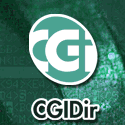|
|
|||||||||||||||||||||||||
|
|||||||||||||||||||||||||
|
Search
Scripts
Press Releases by JavaScriptSearch
Khronos Group Releases OpenMAX AL 1.0 and OpenSL ES 1.0 Specifications for Embedded Media and Audio ProcessingOctober 4, 2007; 05:12 AM Khronos expects both specifications to be finalized by mid-2008 after integration of industry feedback and completion of conformance tests to enable conformant implementations to use Khronos trademarks. Feedback and comments from the mobile and embedded industries are encouraged on the Khronos technical message boards at http://www.khronos.org/message_boards/ or directly by email to [email protected] and [email protected]. OpenSL ES and OpenMAX AL were designed in close conjunction such that the two APIs expose common functionality, e.g. basic audio playback, in a consistent way - enabling applications to easily use whichever API is available. OpenSL ES is compatible with, and can provide acceleration for higher-level audio standards, including Java API JSR-234 (Advanced Multimedia Supplements). OpenSL ES – Enhanced Audio for Mobile Games, Music and Phone OpenSL ES is a royalty-free, cross-platform open standard for advanced audio processing on embedded and mobile devices to enable highly portable applications that integrate audio functionality including UI sounds, music playback, ring-tones and full 3D games. OpenSL ES simplifies the development of sophisticated audio-enabled applications with a comprehensive feature-set including sampled audio, SP-MIDI, Mobile XMF, metadata extraction, and equalization, as well as more advanced functionality such as MIDI messaging, 3D positional audio, reverberation and virtualization. OpenSL ES enables application portability by providing a consistent interface to a wide variety of audio architectures on multiple operating systems, and defines phone, music and game profiles to enable diverse devices to implement relevant audio functionality, while minimizing functional fragmentation. OpenMAX AL - High-Level Streaming Media Acceleration OpenMAX AL is a royalty-free, cross platform open standard for accelerating the capture and presentation of audio, video and images in multimedia applications on embedded and mobile devices. OpenMAX AL includes the ability to create and control player and recorder objects and to connect them to configurable inputs and output objects including content readers/writers, audio inputs/outputs, display windows, cameras, analog radios, LEDs, and vibra devices. In addition, OpenMAX AL supports extensive controls for various digital camera settings and RDS/RBDS functionality for analog radio. OpenMAX AL is the highest tier of the OpenMAX family of multimedia interfaces and provides simplified, operating system-agnostic, programmer-friendly interfaces to developers for accelerating the majority of streaming media applications. While OpenMAX AL is an independent, stand-alone API standard, it has also been designed to be efficiently implemented over the lower-level OpenMAX IL API that provides configurability of multimedia chains and is intended primarily for use by system integrators.
Member Quotes
“The Khronos APIs and technologies will be a key factor driving the next-generation of rich media experiences on mobile devices,” said Andrej Zdravkovic, senior director for software development at AMD. “AMD is continuing to demonstrate its commitment to enabling open standards by chairing the OpenMAX IL and OpenVG working groups, being a co-lead spec editor on OpenMAX AL and supporting these standards in future Imageon multimedia processors.” “Beatnik is already supplying OpenMAX IL compliant implementations of our industry standard mobileBAE software audio engine to mobile handset and platform providers,” said Russell Tillit, Beatnik’s vice president of engineering. “By delivering technology that fully meets the demands of the OpenSL ES framework we are enabling handset manufacturers to reduce integration time as they bring to market products incorporating advanced audio capabilities and services across a range of hardware, software and operating system platforms.” “As one of the promoters of the Khronos group, Ericsson believes that OpenSL ES and OpenMAX AL will reach the same level of industry adoption as the previously released Khronos specifications,” said Björn Ekelund, vice president product management, Ericsson Mobile Platforms. “Both operators and handset manufacturers will benefit from these new standards, since they will widen the market for developers of creative applications as well as serving as consistent interfaces in Ericsson’s product line of cost-efficient multimedia-rich mobile platforms.” “NVIDIA is delighted to see the release of the OpenSL ES and OpenMAX AL specifications as they complete Khronos’ family of embedded acceleration APIs to enable rich mixed-media applications,” said Neil Trevett, vice president mobile content at NVIDIA and president of the Khronos Group. “NVIDIA has chaired the OpenMAX AL working group and will be strongly supporting these open standards on our range of mobile application processors.” “At QSound, we are firm believers in the benefits of making open, royalty free API’s available to content developers and accordingly, are happy to have participated in the creation of these new standards,” stated David Gallagher, President and CEO of QSound Labs. “QSound will be supporting these standards in its mobile audio solution, microQ.”
About The Khronos Group
|
|
|
|
|
| Copyright © 1998 - 2018 DevStart, Inc. All Rights Reserved | ||




 PRESS BY MONTH
PRESS BY MONTH EDITOR'S DESK
EDITOR'S DESK SUBMIT PRESS
SUBMIT PRESS
